Carney will need to show results for trade concessions, says Canada-U.S. council member
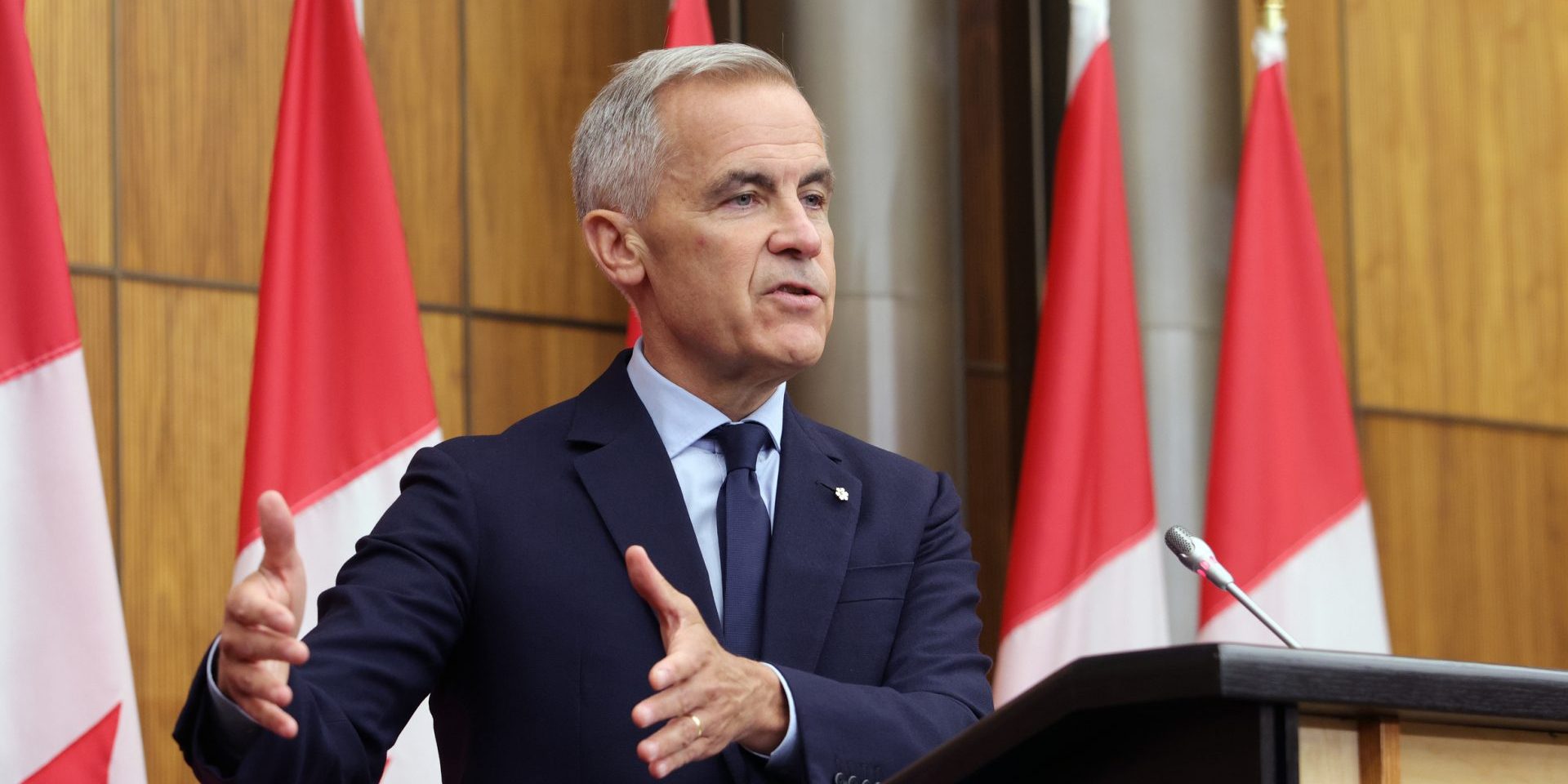
After another concession to United States President Donald Trump, a Senator on Prime Minister Mark Carney’s Canada-U.S. council says that Canadians will need to see results from the rollback.
Carney (Nepean, Ont.) announced on Aug. 22 that Canada would be ending retaliatory tariffs on American exports to Canada that comply with the Canada-United States-Mexico Agreement (CUSMA) in a move that he asserted was “matching” the U.S. approach. The tariffs, which initially came into force on March 4, were on around $30-billion of American goods. While the U.S. offers tariff-free access to Canadian goods in compliance with CUSMA, non-compliant goods currently face an increased levy of 35 per cent. U.S. tariffs and Canadian countermeasures continue on sectorial lines with steel and aluminum, autos, and softwood lumber.
The move is the most recent occasion of Canada bowing to a demand from the Trump administration. It has not been made public what benefits—if any—Canada has been granted in return.
“So far, we have given a lot of concessions to the Americans, but we haven’t seen them do very much to give us the kind of respect that we deserve,” said Independent Senator Hassan Yussuff (Ontario), a member of Carney’s Council on Canada-U.S. Relations.
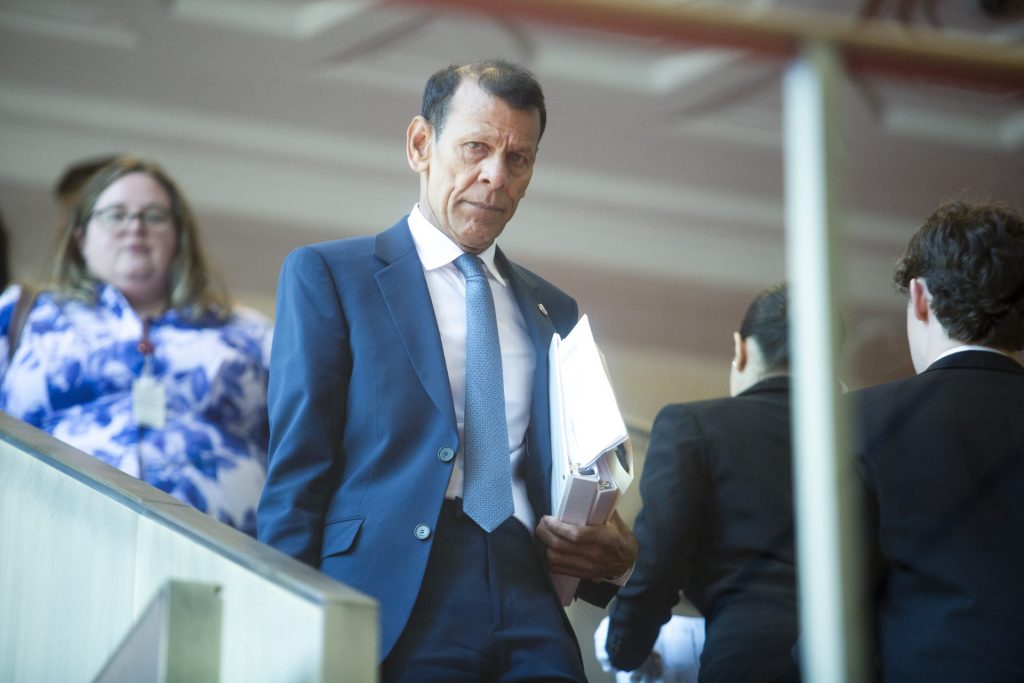
“I am hoping that there is some positive news. I’m still optimistic that something good is going to happen. But until that happens, I think we all have reason to be worried and to be anxious about how long it will take for us to see some relief on the tariffs by the United States,” he told The Hill Times in an Aug. 25 interview.
During the recent federal election, Carney campaigned on an “elbows up” approach to dealing with Trump’s trade actions. He again employed a hockey analogy last week when he told reporters that, sometimes, the approach needs to change.
“There is a time in a game, in a big game—and this is a big game—when you go hard in the corners with your elbows up. There’s a time in a game when you drop the gloves in the first period and you send a message, and we’ve done that,” he said. “But there’s also a time in a game where you want the puck. You want to stickhandle. You want to pass. You want to put the puck in the net. And we’re moving later into the game—we’re at that time of the game.”
Conservative Leader Pierre Poilievre (Battle River–Crowfoot, Alta.) criticized Carney for “not throwing one elbow since he took office.”
Under previous prime minister Justin Trudeau, Canada pledged $1.3-billion to address border concerns raised by Trump before the president took office for the second time. In June, Carney’s government announced that it would be rescinding the digital services tax to restart trade talks after they were suspended by the U.S. over complaints about the levy.
‘We have to have some levers’
Retaliatory tariffs were used by Canada during Trump’s first term after the U.S. put in place steel and aluminum tariffs in 2018. Those eventually were removed when each side struck an agreement in 2019.
Many of Canada’s allies—the European Union, the United Kingdom, and Japan—have sided against applying countermeasures, which has left Canada as one of the lone countries irking the Trump administration by pushing back. In April, Steve Verheul—who negotiated the agreement that became the CUSMA—said that Canada was in the “difficult position” of being isolated, remarking that retaliation is a “useful tool” but the rest of the world doesn’t see it the same way.
On Aug. 21, the day before Carney announced that he was removing the countermeasure, he held a call with Trump.
“The leaders discussed current trade challenges, opportunities, and shared priorities in a new economic and security relationship between Canada and the U.S.,” according to a Prime Minister’s Office readout of the call.
Yussuff said that he hopes there will be positive news in “a short time.”
“I can’t imagine that the prime minister is simply doing this out of kindness and hoping and praying that Donald Trump will do the right thing,” he said.
“We have to have some levers to put some pressure on the president and it would appear to me that we’ve got very little or no levers at all,” said Yussuff, adding that he hopes to see an explanation of what the recent move will accomplish.
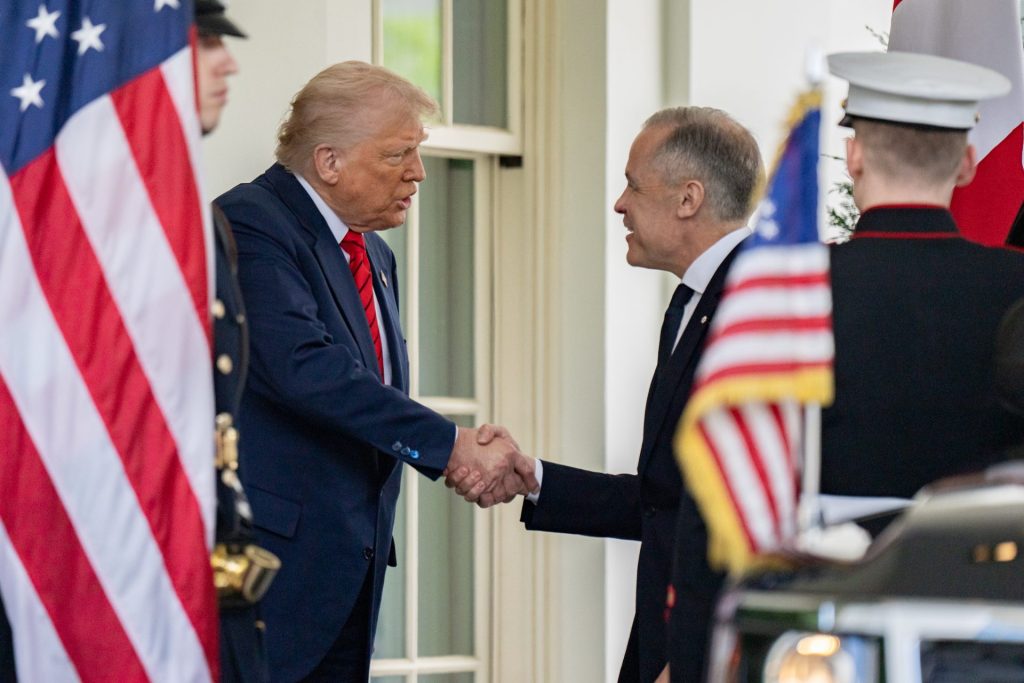
“From a bargaining perspective, you want to use all the pressure you can to get the attention that is required,” he said. “Now that we have relieved the tariff, [we] are hoping that we will see some action by the president and his administration.”
Yussuff said workers may feel that they are being left adrift.
“I think all Canadians … are scratching their heads and wondering, ‘Are we going to get some recognition of the unjust tariffs the Americans have put on these industries?’” he questioned. “We don’t know that, but I am assuming that something positive is about to happen.”
Yussuff said he hasn’t been specifically told about any sort of agreement, but remarked that he is hoping Carney has been reassured by Trump that some actions will soon be taken.
“If that’s not the case, workers and [affected] industries are going to be very, very disappointed,” he said. “They need to be reassured that our government’s action is not in vain.”
Carney’s Canada-U.S. council met on Aug. 22, but Yussuff said he was unable to attend. PMO staff later briefed him about the developments, but he said that didn’t include any more information than what was told to the public.
‘Wrong approach’
Elizabeth Kwan, senior researcher at the Canadian Labour Congress, said the removal of the counter-tariffs is the “wrong approach.”
“It weakens the bargaining power that Canada has—whether it’s for the economic and security deal, or the upcoming CUSMA renegotiation,” she said.
The CUSMA mandates a review of the trade pact in 2026, which many believe will take the form of a renegotiation. Carney announced that consultations will soon begin ahead of those talks.
Kwan said there are only so many provisions that Canada can put on the negotiation table to move a tit-for-tat approach.
She said that over the last few months, the Carney government has tried to appease the Trump administration.
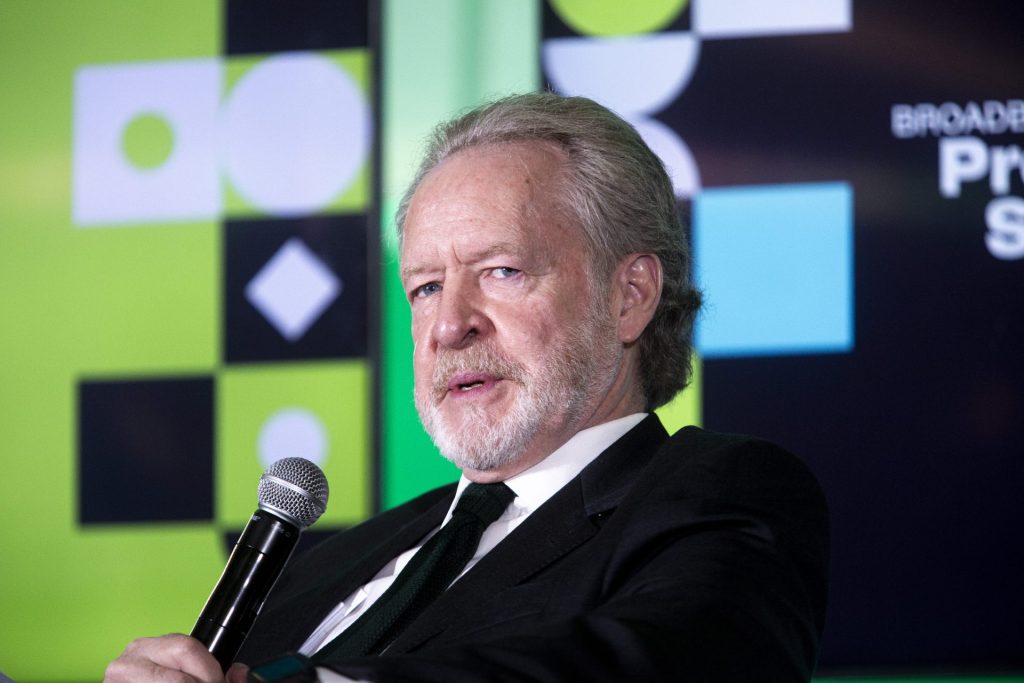
“If there was any sign that appeasement works, it would be another story. But every single appeasement—every single capitulation to President Trump’s tariffs and the trade issues—has not given anything back to Canadians, so it is the wrong approach to actually remove those counter-tariffs at this point,” she said.
Kwan said there needs to be transparency from the government regarding the situation, remarking that labour has been “shut out” of the process.
“We have nothing to go on except for some faith in the fact that something is happening and that something good is happening—and that’s not good enough, quite frankly,” she said.
She added that it is important not to make trade-offs on the CUSMA renegotiations for the purpose of an economic and security partnership.
What was gained?
Former Canadian diplomat Roy Norton, who served as consul general in Chicago and Detroit, said that the retaliation had irked the Trump administration.
U.S. Ambassador to Canada Pete Hoekstra told Global News earlier this month that Canada “pulled the rug out” of CUSMA, remarking that could call into question the trade pact as a whole.
Norton said that gave Canada reason to step back and evaluate whether the countermeasures were bringing the same benefits as when they were announced, given the country’s objectives.
“[It brings the question of] whether retaliation continues to be appropriate [and] required, or whether it achieved its goals, or whether the environment has sufficiently changed to cause a re-evaluation—that seems to be where the government is at,” he said.
Norton said it isn’t plainly clear what Canada is gaining through the concessions, or for how long any gains will last before the Trump administration makes its next ask.
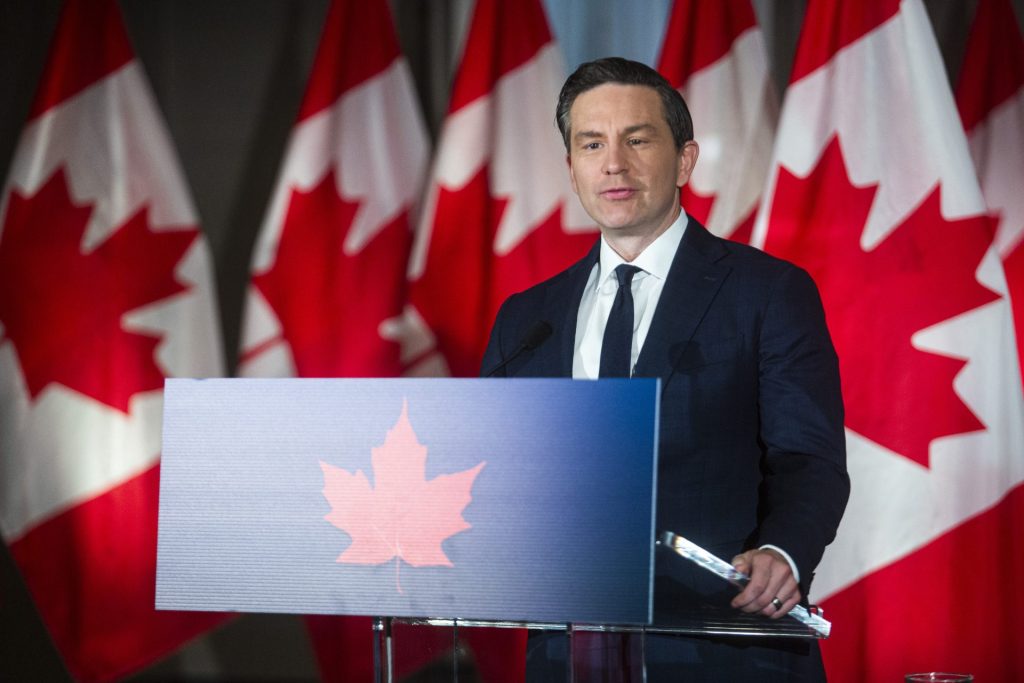
“It may conceivably buy relief from existing tariffs. It might conceivably forestall new ones. But you can’t know—it’s a bit of a throw of a dice,” Norton said. “The prime minister and cabinet have obviously decided to be conciliatory.”
Former Canadian trade negotiator Colin Robertson said the elimination of the retaliation is “prudent.”
“It keeps us in the game,” said Robertson, now senior adviser at the Canadian Global Affairs Institute.
He said that Canada’s long-term objective is to maintain preferential access to the U.S. market.
“We are in an asymmetrical relationship. As Trump would say, he’s got all the cards. We don’t have too many,” he said. “We have to play the game he plays.”
Robertson said retaliation was important at the time to show political unity with support of the premiers, but now that circumstances have evolved, a tactical move has been made.
“If you’re getting down to the end game … you do what you’ve got to do keeping in mind what your objective is,” he said, remarking that it remains to be seen whether Canada will succeed.
nmoss@hilltimes.com
The Hill Times






 LICENSING
LICENSING PODCAST
PODCAST ALERTS
ALERTS













